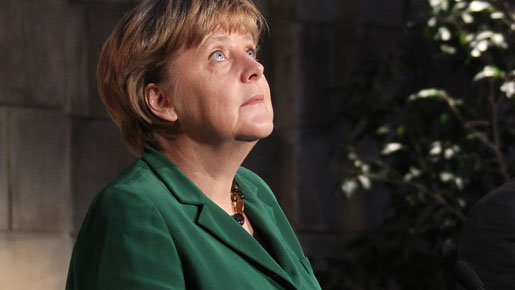
German Chancellor Angela Merkel has called on industrialised and emerging nations to agree to binding targets on cutting greenhouse gases, saying that this was the only way to fight climate change.
Merkel, who has taken a leading role in pushing other countries to fight climate change, also put the blame squarely on emerging states for a failure to secure a more ambitious agreement at a December summit on climate change in Copenhagen.
There, countries agreed to set a goal of limiting global warming to a maximum two degrees Celsius over pre-industrial times but failed to say how they would achieve this.
“I think we agree the results we reached in Copenhagen were disappointing,” said Merkel, adding Europe would continue to take a pioneering role in cutting carbon dioxide emissions.
“We need global cooperation and progress will only be possible with internationally binding commitments – but for everyone,” she told the Bundestag lower house of parliament.
“This is what we must work on and this is the task ahead.”
Merkel vowed to continue to push other nations on the issue.
At a summit in Germany in 2007, she brokered a deal between leaders of the Group of Eight industrialised nations to “seriously consider” carbon emissions cuts of 50 percent by 2050 which was seen as milestone at the time.
The next planned UN climate meeting of officials will take place in Bonn, western Germany, from May 31 to June 11.
Merkel said the biggest disappointment in Copenhagen had been the way emerging nations had refused to tie targets into an international framework.
She pointed to Germany’s goal of reducing greenhouse gas emissions by 40 percent by 2020 and said others had to follow suit.
Germany, the world’s sixth largest emitter, is focusing on saving energy and boosting its efficiency by introducing rules for new cars and buildings. It also plans a major shift to renewable power.
Germany had hoped its offer to raise its 2020 target from 30 percent to 40 percent, combined with an EU offer to raise its goals from 20 percent to 30 percent if other nations pledged substantial cuts, would spur a deal on reductions in Copenhagen.
But Merkel insisted the EU’s planned reductions would only work if other world nations agreed on targets.
“I say yes to 30 percent cuts for Europe but only if other countries of the world respond with equally ambitious targets,” she said.
“Otherwise, we will not help (tackle) climate change.”

